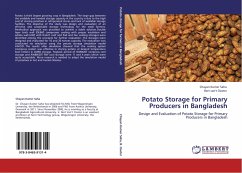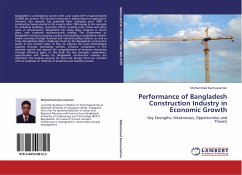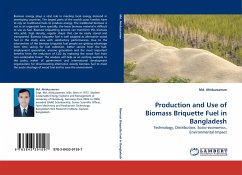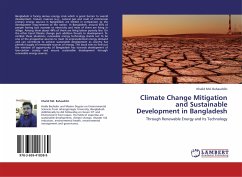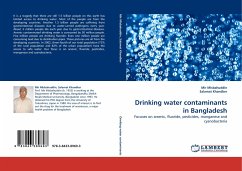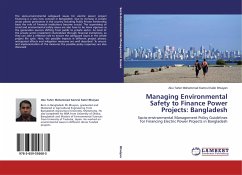Potato is third largest growing crop in Bangladesh. The large gap between the available and needed storage capacity in the country is due to the high cost of storing potatoes in refrigerated stores and lack of available storage facilities. The objective of the study was design and evaluation of an effective and sustainable storage technology for the small farmers. Methodical approach was practised to achieve a viable solution.Double layer brick wall (DLBW) compressor cooling with proper insulation and adobe wall (AW) with thatch roof and Pad and Fan cooling storages were identified among the concepts for further evaluation. The storages were designed and evaluated for 10 and 20 tonnes capacity. The evaluation was conducted via simulation using the potato storage simulation model AMOD. The results after simulation showed that the cooling system (compress cooler) was effective in storing potato at desired temperature level (4-6oC) in DLBW storage. Payback period of DLBW20T compresscool storage and AWBW20T P&F cool storage were 11 and 4 years which were quite acceptable. More research is needed to adapt the simulation model of potatoes in hot and humid climates.
Bitte wählen Sie Ihr Anliegen aus.
Rechnungen
Retourenschein anfordern
Bestellstatus
Storno

